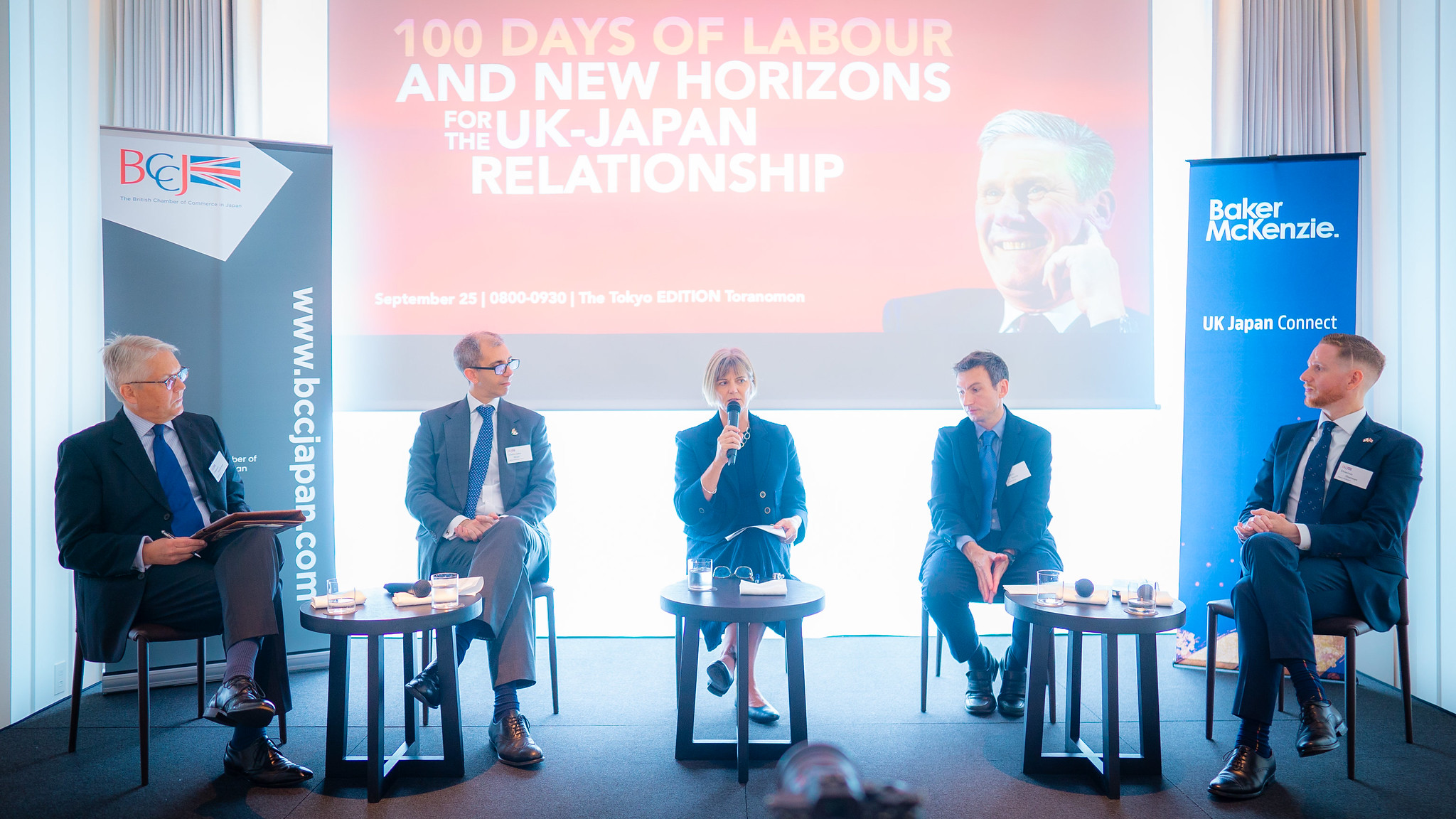Sir Keir Starmer's Labour government took office in July 2024 with a bold reform agenda focused on energy, finance, healthcare, and immigration.
After 100 days in office, the British Chamber of Commerce in Japan held an event to discuss the government's priorities and their impact on the UK–Japan business ecosystem.
The panel featured His Majesty's Ambassador to Japan, Julia Longbottom CMG; Director for Trade & Investment Japan and Deputy HM Trade Commissioner for North-East Asia, Christopher Hunt; Dominic Sharman, partner at Baker McKenzie; and Stephen Norris, partner at Control Risks. The session was moderated by Dominic Henderson, managing director of Sodali & Co.

Ambassador Longbottom highlighted the strength of the UK–Japan relationship, strengthened by the 2023 Hiroshima Accord, covering areas like defense, economic growth, and global challenges such as climate change. She outlined the Labour government's five key missions: driving economic growth, becoming a clean energy superpower, tackling crime, ensuring equal opportunity, and improving the national healthcare system. These priorities align well with UK –Japan opportunities in economic security, technology, supply chains, and clean energy.
Baker McKenzie's Dominic Sharman noted that Japan has become more welcoming to foreign businesses, with regions like Osaka and Fukuoka offering incentives. He highlighted the benefits of the UK–Japan Comprehensive Economic Partnership Agreement (CEPA) and the UK's upcoming formal accession to the Comprehensive and Progressive Agreement for Trans-Pacific Partnership (CPTPP), which will further reduce trade barriers.
While the Labour government has moved quickly on reforms, potential challenges for Japanese companies in the UK include the English Devolution Bill and the Employment Rights Bill, which could increase employee rights. However, UK Trade Director Christopher Hunt emphasized that post-Brexit opportunities remain, mainly through partnerships on AI regulation, healthcare, and clean energy.
Stephen Norris of Control Risks warned that sustaining the government's rapid pace of regulatory reform might prove difficult. Still, he saw significant opportunities for Japanese businesses in electric vehicle infrastructure and clean energy industries like offshore wind.
Ambassador Longbottom also pointed to Japan's growing interest in renewable energy, citing the UK's success in increasing its share of renewables to over 50% and phasing out coal. She discussed the potential for collaboration between the UK and Japan on offshore wind development and "green" energy grids in Southeast Asia, facilitated by Japanese investment in the UK's offshore wind sector.
The UK's industrial strategy is expected to align closely with Japanese business interests, particularly in sectors such as advanced manufacturing, AI, life sciences, defense, renewable energy, and financial services. Japan's Ministry for Economy, Trade and Industry is eager to collaborate with the UK on policy and trade development, promising extensive opportunities for businesses from both countries.
Watch the panel discussion recording here.
Other Upcoming Events
